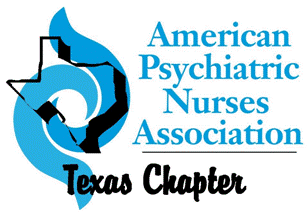“There is recovery. People go on to lead good lives. And infusing that mentality into mental health care is critical to the success and well-being of individuals with mental health needs,” says Stephany Bryan, Program Officer and Consumer & Family Liaison at the Hogg Foundation. American Psychiatric Nurses Association (APNA) Texas Chapter is doing just that.
For many years, individuals who identified as having a mental illness were “treated” with no hope of a better life. However, over the last decade, there has been a shift from a medical model of treatment to recovery-oriented care, which focuses on instilling hope, connecting people to peer support, self-directed symptom management, and other recovery principles.
At the national level, the fields of psychology, psychiatry, nursing, social work, peer support and addiction counseling participated in Substance Abuse and Mental Health Services Administration’s (SAMHSA) original Recovery to Practice (RTP) initiative and developed curricula to fit their respective professions. In 2015, the Hogg Foundation awarded grants to support these six behavioral health disciplines in bringing the RTP initiative to Texas. With these grants, Texas became the only state to disseminate the national-level RTP curricula.
APNA collaborated at the national level with peers and psychiatric-mental health nursing leaders to promote recovery, and to develop curriculum and training materials to increase nursing knowledge of recovery-oriented care and how it translates into practice. The APNA Texas Chapter was one of the six grantees to receive funding from the Hogg Foundation to implement the RTP curriculum for their discipline throughout Texas.
A Tailored Approach
Originally, APNA sought to disseminate the content as quickly and conveniently as possible, which lent itself to an online course. However, they heard feedback that the course needed to be presented in person and the training evolved from there. The live program is now highly customizable and interactive with activities that are modified for the audience and participants sharing their personal experiences.
The curriculum is built around fairly generalized principles, which allow it to work for nurses beyond the inpatient setting. “We share videos of psychiatrists in recovery when we present to psychiatrists. We share a video showing a patient’s experience in an acute ER when we teach ER nurses. We talk about incorporating recovery principles into plans of care no matter which discipline you represent,” explains Dr. Celeste Johnson, APNA Texas Chapter RTP project director, RTP facilitator and vice president of nursing for psychiatric services at Parkland Health and Hospital System.
Integrated in Organizational Culture
The work of incorporating a recovery mindset goes well beyond the course as hospitals systemically infuse recovery and trauma-informed care into the culture, from welcome letters for new patients to correcting stigmatizing language throughout the facility. New employees attend the RTP course, parts of the curriculum are distributed broadly throughout the hospital, recovery is discussed at departmental and leadership meetings, and recovery concepts are influencing professional development training.
A culture shift is occurring. Nurses and other hospital employees are being challenged to adapt their beliefs and, importantly, their practices to provide better care for patients with mental illness. Instead of approaching patients with a ‘do what we say’ mentality, nurses with a recovery mindset are asking: What can we do to help you achieve your goals? What’s working and what’s not? How can we help? And every individual in the system is better off for it.
By bringing the RTP curriculum to Texas, the APNA Texas Chapter is changing the way nurses and other providers care for patients with mental health conditions. In turn, patients are receiving a better standard of care and a better chance at recovery.
Learn more about APNA Texas Chapter’s work on this initiative. For more information on the foundation’s projects related to recovery, contact Stephany Bryan.
